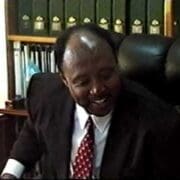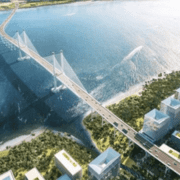Indicted Before Swearing-In: Azruddin Mohamed’s Legal Trouble Casts Shadow Over Guyana’s Opposition Leadership
By News Americas Staff Writer
News Americas, FORT LAUDERDALE, FL, Mon. Oct. 6, 2025: Guyana’s fast-changing political landscape took another stunning turn Monday as Azruddin Mohamed, the businessman whose family empire dominates the nation’s gold trade and who is set to become the country’s opposition leader, was indicted by a U.S. federal grand jury in Florida today.
Azruddin Mohamed, the US sanctioned and now indicted businessman and founder of the WIN party.
The indictment, filed in the Southern District of Florida and unsealed today, October 6, charges Azruddin Mohamed and his father, Nazar “Shell” Mohamed, with multiple counts of wire fraud, mail fraud, money-laundering conspiracy, and asset-forfeiture violations. It marks the latest escalation in a widening transnational probe into the operations of Mohamed’s Enterprise, long one of Guyana’s largest gold exporters.
Azruddin’s indictment lands at a moment of political triumph: his We Invest in Nationhood (WIN) party finished second in Guyana’s September 1 general election, earning him the constitutionally recognized post of Opposition Leader. His pending swearing-in now thrusts Guyana into an unprecedented situation – one in which a man facing serious U.S. criminal charges could soon occupy one of the highest offices in the country’s democratic system.
A Collision of Law and Leadership
The federal charges allege that the Mohameds engaged in complex schemes to defraud both U.S. and Guyanese authorities through falsified export documentation and under-reported taxes. Prosecutors cite violations of U.S. laws governing fraud and money-laundering conspiracies.
According to the 11-count indictment, Mohamed’s Enterprise allegedly reused sealed shipping boxes and invoices to create the false impression that duties and royalties on exported gold had been paid when, in fact, they had not. The complaint also references the company’s alleged role in undervaluing luxury vehicle imports, including a 2020 Lamborghini Roadster SVJ declared at US $75,300 instead of its estimated US $695,000, depriving the Guyana Revenue Authority, (GRA) of roughly G $383 million in taxes.
If convicted, the defendants face lengthy prison sentences, multimillion-dollar fines, and forfeiture of assets – including a US $5.3 million gold shipment seized in Miami in 2024.
Political Shockwaves
The news has sent tremors through Georgetown’s political establishment. Supporters of the WIN party frame the indictment as a foreign intervention timed to derail a populist movement, while critics argue it underscores long-standing concerns about corruption and the blending of business and politics in Guyana’s resource-rich economy.
With Guyana being now one of the world’s fastest-growing oil producers, the optics are fraught. The United States remains a key partner in security and energy investment – yet its justice system is now directly targeting the man expected to lead Guyana’s parliamentary opposition. Diplomats and analysts warn this could complicate bilateral relations, limit Mohamed’s travel, and cast a shadow over the country’s efforts to project transparency to investors.
Legal Battles at Home
Azruddin Mohamed’s legal troubles are not confined to the United States. In Georgetown, he and family members face Customs Act charges tied to undervalued imports of several luxury cars. The GRA estimates total unpaid duties at more than G $1.2 billion. Although the family won a temporary injunction preventing seizure of the vehicles earlier this year, the judicial review hearing continues before Justice Gino Persaud, with a ruling expected October 31st.
The Road Ahead
Despite the indictment, Mohamed’s swearing-in is expected to proceed as the Guyanese constitution presumes innocence until conviction. Still, the juxtaposition is stark: a newly elected opposition leader confronting both a domestic tax probe and a sweeping U.S. criminal case.
For many Guyanese, the episode encapsulates the nation’s broader crossroads – a young petro-state flush with promise yet haunted by questions of governance, transparency, and accountability.


